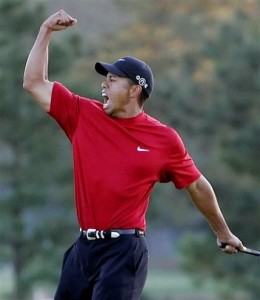
If we agree to take a step back from the world of IT for just a moment, how about if we spend just a bit of time talking about your career. How’s it going? Are you where you’d like to be right now? Perhaps more importantly, have you been seeing your peers do better than you lately? Us IT Managers are generally pretty good at the technical side of doing our jobs; however, when it comes to managing our careers we are all too often just a bit clueless. Good news, some smart folks have been thinking about this problem and they have some suggestions to help us…
Geoff Colvin has written a great book called Talent Is Overrated in which he talks about just what it takes to be successful. He’s got some good news for us and some bad news. Which would you like first? Let’s start with the good news. All too often we tend to think that genetics plays a large role in somebody’s success. In sports we have Tiger Woods, Michael Jordan, Lance Armstrong and in business we have Jack Welsh, Richard Branson, and even Warren Buffet. Clearly all of these folks must have come from amazing genetic stock, right?
Colvin throws this idea out the door. Yes, sports superstars probably do have some natural talents that help them during their career; however, that’s not what made them a superstar. In business, if you’ve ever seen pictures of the really BIG names, then you’d quickly understand that they don’t LOOK like they are anything special. However, Colvin says that great performance (from which comes great success) basically rests on one specific action more than anything else: deliberate practice.
Let’s be real clear what is meant by practice here. We’re not talking about going out and hitting 2,000 golf balls on a practice tee and then declaring that you are as good as Tiger Woods. We’re not talking about hosting and running 1,000 business meetings and then telling the world that you have Sir Richard Branson’s leadership skills. Nope, what we are really talking about is practicing with a focus. This means that you hit a ball / run a meeting and at the end you sit back and ask yourself “…what could I have done better?” You then make a change in how you hit a ball / run a meeting and then you do it again. You ask the same question at the end of the activity and repeat it over and over again. Just in case you are missing this subtle point: this is no fun to do whatsoever. However it is necessary if you want to be better.
Colvin pointed out two great examples of people who have done just exactly this and gone on to greatness. The first is Jerry Rice who was an NFL wide receiver who wasn’t really all that big nor was he really all that fast (in comparison to the other wide receivers on the field with him). However, Jerry noticed that by the end of a football game, all of the players on the other team were totally exhausted. Jerry spent the time focused on one thing: building up his endurance. What this meant is that when everyone else had nothing left to give, he had an extraordinary advantage over them during the final 15 minutes in the game. He used this advantage to score, score, score. Colvin also talks about the comedian Chris Rock. Chris is a huge star and puts on shows in large stadiums. However, long before those shows, he spends months going from small comedy club to smaller comedy club in order to practice new material and refine, refine, refine his act.
Here’s some of the bad news: Colvin believes in something called the “10-year rule”. What this means is that he believes that it can take 10-years to achieve a high level of excellence in just about any field. However, you can still do it. What it will take is deliberate practice. Two key activities are called for here: over practicing and getting feedback from others. One final point: Colvin says that if your job feels easy, then you are unlikey to ever become a star. Words to think about…
How do you feel about your career right now: are you on track or falling off track? Are you currently working on improving any parts of your job that you have difficulty with? Are you willing to work at getting better for 10 years in order to reach the top? Leave a comment and let me know what you are thinking.
